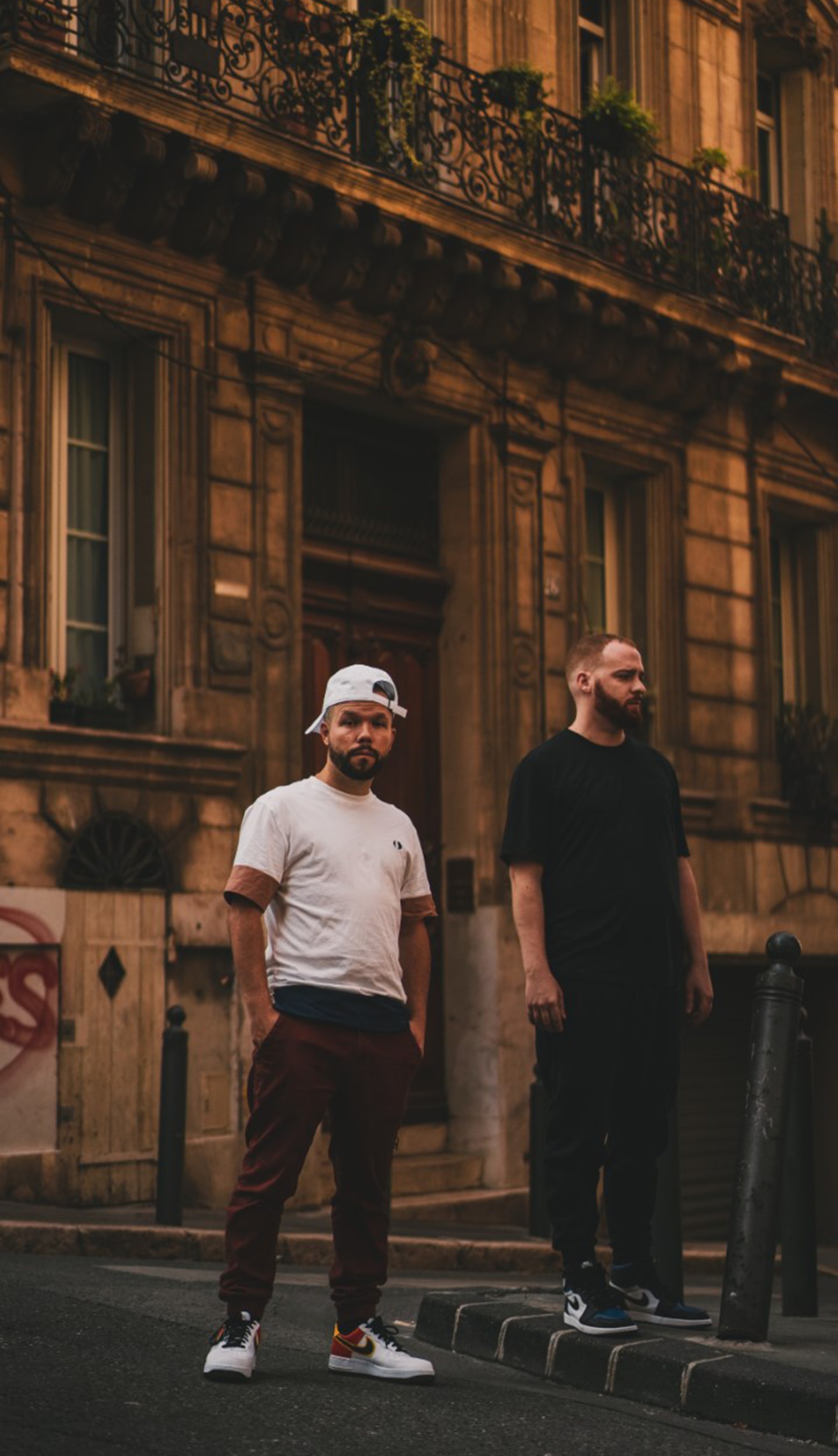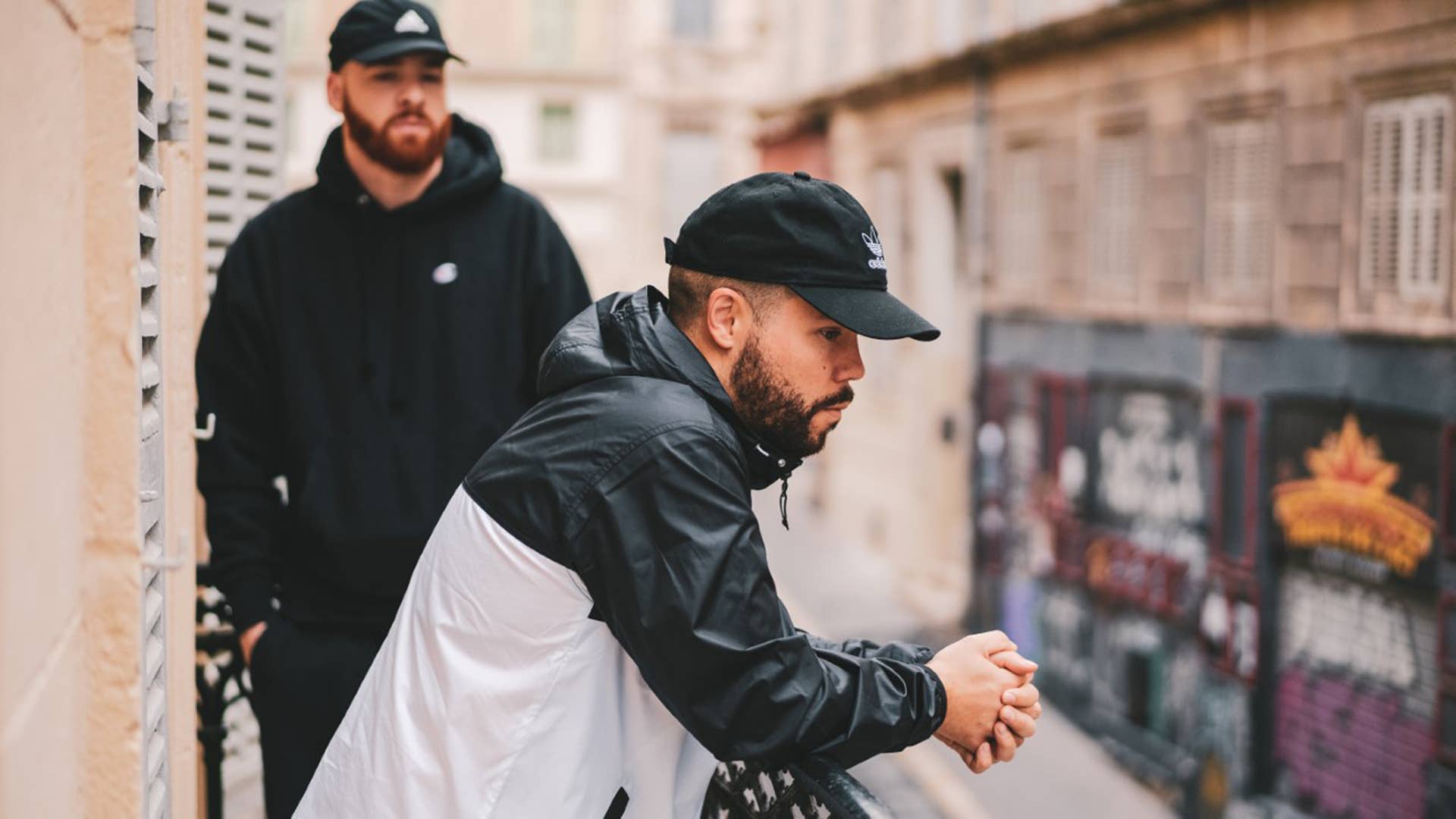
Hull, Quebec seems like an odd place.
So odd is this sleepy town on the north side of the Ottawa River, it has its own Instagram account devoted to its unique strangeness called What the Hull. In it, you’ll find crumbling infrastructure and questionable car paint jobs; perhaps not all that different from other parts of the country, but nevertheless a window into life on the flipside of the Capital Region.
It’s also home to one of Quebec’s finest MCs and one of the most internationally decorated producers in the country. Their age difference prevented them from growing up together, but as adults, rapper Gatineau native D-Track and Aylmer-raised beatmaker Nicholas Craven have teamed up for Hull, an album that’s less an ode to where they’re from, and more a declaration of where they’re going: the upper echelons of hip-hop’s current classic sound revival.
The in-demand Craven knows a thing or two about the golden age comeback. In the past year alone he produced for Ransom, Mach-Hommy, Roc Marciano, and Griselda’s Westside Gunn. But he worked on Hull longer than any of those, and over two years the pair cranked out about 60 tracks, with 12 making the final cut. Craven said if anglophiles want to compare D-Track to any English-language rappers, think someone like Evidence.
“For this album, I wanted to do featurings outside of Quebec. I wanted to prove myself and compete with other rappers from around the world.” -D-Track
Craven lives in Montreal these days. D-Track, a.k.a. David Dufour, recently moved back to Gatineau from Montreal, which is why the concept of home looms large on Hull.
“It’s changed massively in the last five years,” Dufour explained. “It’s like ‘boom’—condos everywhere. I’m getting older, so I’m maybe I’m not connected as much as I used to, but when I started rapping at 16 there was really this feeling that you’re from your neighbourhood. I was from Gatineau and I used to freestyle battle kids from Hull. They didn’t like us and we didn’t like them, so there was really that kind of feel for the neighbourhoods.”
In 20 years, D-Track has gone from battling Hull to naming an album after it. He moved back because he wanted to raise his two kids with his girlfriend closer to family and away from the big city.
“I was getting panic attacks in Montreal,” he said.
The 514 also shaped his musical evolution, for better or worse. Craven thinks highly of D-Track’s literate rap skills—so knowledgeable is Dufour, he’s been dropping monthly raps about current events called Raptualité all year—but Craven heard the business side seep into his flow. More hooks, more gimmicks, more bells and whistles to attract pop-oriented Montreal audiences. Generally more self-conscious.

Craven, who previously worked with D-Track on a Charles Aznavour tribute Shahnour, wanted to distill his MC’s essence, back to the basics of those hardscrabble Gatineau freestyle battles. Craven respected D-Track’s no-nonsense work ethic. D-Track respected Craven’s perfectionism.
“I pushed him because I always thought he had the potential to make a classic album,” Craven said. “He’s confident about his talent level, but he didn’t know all the new ways about having a music career in hip-hop these days with the Internet and the sounds of Roc Marciano and Westside Gunn. There are a whole bunch of ways to have a career without having to necessarily sign with somebody. There’s a fertile market for the independent business right now.”
For Dufour, that meant less trying to get on the radio or capture another city’s sound. By being a guy from outside a rap city centre, he was free to buck trends and pursue something timeless. D-Track grew up in the days of rap that Craven and his counterparts are referencing, so he’s the perfect vessel to place over boom bap, soul, and even percussion-less productions.
“It was reassuring to me, to know I can do whatever the hell I want and still be relevant,” D-Track said. “It’s a great era right now, I really like it. Five years ago, I wouldn’t have thought I’d feel this way about rap music. And working with Nicholas, you realize rap is rap, and you don’t need to have a catchy hook or be Top 40. You can have your universe and people will follow it.”
In terms of D-Track’s world, he’s a 36-year-old father with a bachelor’s in sociology who’s ecologically anxious about the future and sick of city life, and it all factors into Dufour’s honest, dense storytelling.
Craven also guided D-Track in another way. He asked the rapper for a wish-list of collaborators to work with. Buffalo rapper Che Noir appears as the lone English verse on Hull, but there was just one name that D-Track really wanted: Akhenaton from seminal Marseille rap group IAM. Craven said he just wanted D-Track to say it out loud—the rapper basically did the rest and sure enough, the French MC guests on “Soroche.” The pair also flew to Marseille to shoot a video with the legend.
“Craven said, ‘Go get it, it’s not impossible,’” D-Track said. “For this album, I wanted to do featurings outside of Quebec. I wanted to prove myself and compete with other rappers from around the world, and Akhenaton is someone I’ve been listening to since I was a kid and still listen to.”
Akhenaton was already a fan of Craven’s work with Ransom, so it didn’t take music convincing to get him on the track.
At its core, Hull is a rapper from Gatineau and a producer from Aylmer pushing each other to new heights. But it’s also an album that aspires to move beyond borders. D-Track and Craven want the album to sit not just alongside Quebec rap’s certified classics, but as part of a new generation of rap purists who pore over the details. Hull is dedicated to the devout.
“The truth is, I don’t go to the club anymore. I don’t know club music, and the best part of this era is you can be a rapper in their 30s, 40s or 50s and still have something to say that’s authentic and interesting,” said D-Track.
When it comes to Craven’s discography, he believes D-Track stands alongside the other rappers he’s worked with and Hull belongs with like-minded records from what Craven called “the invisible renaissance,” a term coined by hip hop writer and historian Sunez.
“For sure, 100 per cent. D-Track already is,” Craven said. “And I think it’ll fit very well, it’s going to be one of the true first French entries in the invisible renaissance.”


